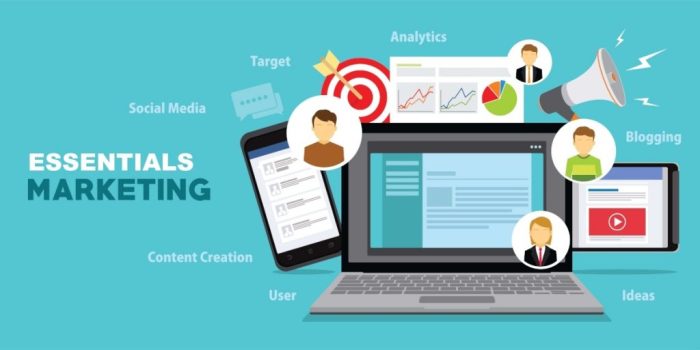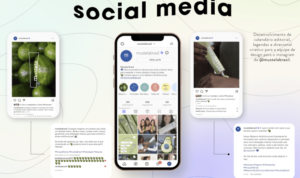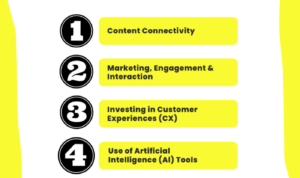Mobile Marketing Essentials sets the stage for this enthralling narrative, offering readers a glimpse into a story that is rich in detail with American high school hip style and brimming with originality from the outset.
In a world dominated by mobile technology, understanding the core principles of mobile marketing is essential for any business looking to thrive in the digital age. From optimizing websites for mobile users to leveraging location-based services, this guide covers all the key aspects needed to succeed in the mobile marketing realm.
Overview of Mobile Marketing Essentials

Mobile marketing is all about reaching your audience on their smartphones and other mobile devices. It involves promoting your products or services through mobile channels such as apps, websites, SMS, and social media platforms.
Importance of Mobile Marketing, Mobile Marketing Essentials
In today’s digital landscape, mobile marketing is crucial for businesses to connect with their target audience effectively. With the increasing use of smartphones, people are spending more time on their mobile devices than ever before. This shift in consumer behavior makes it essential for companies to have a strong mobile marketing strategy to engage with potential customers where they are most active.
- Mobile marketing allows for personalized and targeted communication with customers, leading to higher engagement and conversion rates.
- It provides opportunities for location-based marketing, enabling businesses to reach customers based on their geographic location.
- Mobile marketing offers a cost-effective way to reach a large audience compared to traditional marketing channels.
“Mobile marketing is not just an option anymore, it’s a necessity for businesses looking to stay competitive in the digital age.”
Differences from Traditional Marketing
Mobile marketing differs from traditional marketing strategies in several ways. While traditional marketing focuses on mass communication through channels like TV, radio, and print, mobile marketing allows for more personalized and interactive communication with individual customers. Additionally, mobile marketing leverages the unique features of mobile devices such as push notifications, location-based services, and mobile apps to create a more engaging user experience.
- Mobile marketing is more targeted and allows for real-time interaction with customers.
- It provides instant access to information and services, catering to the on-the-go lifestyle of today’s consumers.
- Mobile marketing can track and measure campaign performance more accurately, providing valuable insights for optimization.
Creating a Mobile-Optimized Website
Mobile optimization is crucial for any website to provide a seamless user experience on smartphones and tablets. Here are some tips for designing a responsive website for mobile users:
Designing for Mobile Users
When designing a mobile-optimized website, make sure to prioritize simplicity and ease of navigation. Keep the layout clean and uncluttered to ensure easy access to important information.
Fast Loading Times
Fast loading times are essential for mobile websites. Users expect quick access to content on their mobile devices, so optimize images and reduce server response time to improve loading speed.
Optimizing Content for Mobile Screens
Content should be optimized for mobile screens to ensure readability and user engagement. Use larger fonts, concise text, and clear calls-to-action to enhance the mobile user experience.
Mobile App Development for Marketing
Mobile app development for marketing has become increasingly important in today’s digital landscape. With the rise of mobile usage, businesses are leveraging mobile apps to reach their target audience more effectively. Let’s explore the benefits of developing a mobile app for marketing purposes, share examples of successful mobile apps used for marketing campaigns, and discuss key features that a mobile marketing app should have.
Benefits of Developing a Mobile App for Marketing
- Increased brand visibility and awareness among mobile users.
- Enhanced customer engagement through personalized content and push notifications.
- Improved customer loyalty and retention with a direct channel for communication.
- Ability to gather valuable data and insights for targeted marketing strategies.
Examples of Successful Mobile Apps for Marketing Campaigns
- Starbucks Mobile App: Allows customers to order ahead, earn rewards, and receive personalized offers based on their preferences.
- Sephora Virtual Artist App: Enables users to try on makeup virtually, share looks on social media, and receive product recommendations.
- Nike Training Club App: Provides personalized workout plans, tracking tools, and motivational content to engage users and promote brand loyalty.
Key Features of a Mobile Marketing App
- Intuitive user interface for seamless navigation and engagement.
- Personalization options to tailor content based on user preferences and behavior.
- Push notification capabilities for timely updates and promotions.
- Integration with social media platforms for easy sharing and increased reach.
- Mobile payment options for convenient transactions and enhanced user experience.
SMS and MMS Marketing Strategies

SMS (Short Message Service) and MMS (Multimedia Messaging Service) are both powerful tools for mobile marketing, but they differ in the type of content they can deliver. SMS marketing involves sending text messages to customers’ phones, while MMS marketing allows for the inclusion of multimedia content such as images, videos, and audio.
Best Practices for SMS Marketing Campaigns
- Keep messages concise and to the point to grab attention quickly.
- Include a clear call-to-action to encourage customer engagement.
- Personalize messages to make them more relevant to the recipient.
- Avoid spammy language and only send messages to opted-in subscribers.
- Monitor and analyze campaign performance to optimize future messages.
Using MMS for Customer Engagement
MMS can take your mobile marketing campaigns to the next level by providing a more visually appealing and interactive experience for customers. Here are some ways to leverage MMS effectively:
- Send product images or videos to showcase new arrivals or promotions.
- Create interactive content like quizzes or games to engage customers.
- Utilize MMS to provide exclusive behind-the-scenes content or sneak peeks.
- Use MMS to send coupons or special offers that can be easily redeemed in-store or online.
- Ensure multimedia files are optimized for mobile viewing to enhance the user experience.
Location-Based Marketing Techniques
Location-based marketing techniques involve targeting consumers based on their geographic location to deliver relevant and personalized messages. Businesses can leverage geotargeting in mobile marketing to reach their target audience effectively and increase engagement. By utilizing location-based services, companies can tailor their advertising strategies to specific regions or neighborhoods, providing more targeted and relevant content to potential customers.
Geotargeting in Mobile Marketing
Geotargeting in mobile marketing allows businesses to deliver location-specific advertisements to users based on their GPS coordinates or proximity to certain landmarks. This technique enables companies to send targeted messages, promotions, and offers to consumers in real-time, increasing the chances of driving foot traffic and conversions. For example, a restaurant can send a special discount coupon to customers who are in the vicinity, enticing them to visit and make a purchase.
Leveraging Location-Based Services
Businesses can leverage location-based services such as geofencing, beacon technology, and location-based push notifications to deliver personalized content to consumers. Geofencing allows companies to set up virtual boundaries around specific locations and send notifications to users who enter or exit the designated area. Beacon technology uses Bluetooth signals to communicate with mobile devices in proximity, offering targeted promotions or information.
Location-based push notifications deliver relevant messages to users based on their location, encouraging them to take action or visit a nearby store.
Successful Location-Based Marketing Campaigns
Starbucks
The coffee chain used geofencing to send personalized offers to customers who were near their stores, resulting in increased foot traffic and sales.
Pokemon Go
The popular mobile game utilized location-based augmented reality to drive players to specific locations, such as businesses and landmarks, creating a unique marketing opportunity.
Sephora
The beauty retailer implemented beacon technology in stores to send personalized recommendations and promotions to customers, enhancing the shopping experience and increasing sales.
Mobile Search Engine Optimization (): Mobile Marketing Essentials
In today’s digital landscape, having a strong mobile strategy is crucial for businesses looking to improve their visibility in search engine results. With the majority of internet users now accessing websites through mobile devices, optimizing your site for mobile search is essential for reaching your target audience effectively.
Importance of Mobile
- Mobile-first indexing: Google prioritizes mobile-friendly websites in search results, making mobile optimization a key factor for ranking.
- User experience: Mobile-optimized sites provide a better user experience, leading to higher engagement and lower bounce rates.
- Local search: Mobile helps businesses target local customers through location-based searches, improving visibility for nearby users.
Tips for Optimizing Websites for Mobile Search
- Responsive design: Ensure your website is responsive and adapts to different screen sizes for a seamless user experience.
- Page speed: Optimize your site for fast loading times on mobile devices to improve user satisfaction and search engine rankings.
- Mobile-friendly content: Create concise, easy-to-read content that is optimized for mobile viewing to keep users engaged.
Impact of Voice Search on Mobile Strategies
- Increasing usage: Voice search is on the rise, with more people using voice assistants like Siri and Google Assistant to find information on the go.
- Long-tail s: Optimize your content for conversational queries and long-tail s to align with how people search using voice commands.
- Featured snippets: Focus on obtaining featured snippets to capture voice search traffic and provide immediate answers to user queries.




